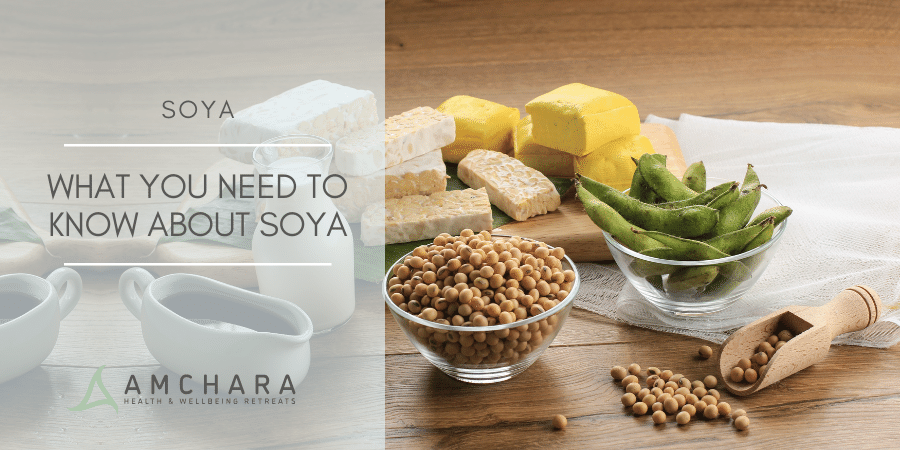The Soya Story
Many of you will know that dairy products are difficult for the body to digest, and that it is often easier on your digestive system to opt for dairy alternatives. You can read more about why dairy is best avoided in my article, Wheat and Dairy The Usual Suspects.
A common alternative that you might consider to have is Soya products such as Soya milk and cream, and it is understandable, as most people are unaware of the risks that are associated with these products.
Why do we not recommend soy products?
Many soy products contain genetically modified (GM) ingredients. Five of the main GM foods that are currently on the market are soy, sugar beet ,canola, cotton and corn.
GM foods come from genetically modified crops and often the engineering that results in a GM product involves the use of chemicals or radiation to modify the products. Whole, unprocessed GM soya beans have not been approved for consumption in Europe.
There have been many studies into GM foods, and it is only in more recent years that scientists from independent organisations have discovered the risks involved with eating GM foods, and there are many.
The world’s largest GM soya production companies is called Monsanto, and an estimated 90% of the worlds soy crop is manufactured by Monsanto. Monsanto are making money from GM foods that are causing health problems in the human race, which is just plain wrong. In May 2012, France attempted to ban Monsanto from starting a new GM maize plantation due to the health risks associated with GM foods.
Studies into GM foods
GM plants, which includes soy beans, have had new genes inserted into their DNA, and these new genes derive from species like viruses and bacteria that have never been in the food supply of humans.
In 2009, a animal study by the American Association of Environmental Medicine (AAEM) uncovered an array of health risks associated with GM foods. The results were astonishing and showed that the consumption of GM foods could lead to infertility, digestive problems, problems with the immune system, faulty insulin regulation and led to faster ageing. The scientists who worked on the case spoke out and asked all doctors and medical professionals to advise patients against the consumption of GM foods.
The Food and Drugs Association (FDA) in the US had also previously warned against the severe side effects that had been noted in GM food studies, including the development of allergies, toxin build up, illnesses and nutritional/digestive problems.
The companies who are responsible for genetic modification of foods have on occasion been found to hide test results confirming the toxic effects of GM foods.
What alternatives could I choose instead?
If you are lactose intolerant or just want to remain healthier by avoiding dairy, there are other alternatives to soya. Almond milk is one which has a much richer and more natural flavour. Hemp milk is another high protein option which can easily be made yourself at home by simply blending hemp seeds with water, and it’s yummy and creamy too. You can also opt for oat milk and cashew milk for better health.
Related topics of interest:
- The Dairy Dilemma
- Should you go dairy-free?
- Top Alternatives to Cow’s Milk (and why we don’t recommend soya)
Alternative milk recipes:




